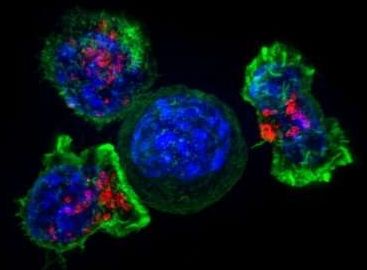Customised immunotherapy for treating cancer is part of the new generation of biotech solutions to diseases.
UC San Francisco scientists have engineered human immune cells that can precisely locate diseased cells anywhere in the body and execute a wide range of customizable responses, including the delivery of drugs or other therapeutic payloads directly to tumors or other unhealthy tissues. In experiments with mice, these immune cells, called synNotch T cells, efficiently homed in on tumors and released a specialized antibody therapy, eradicating the cancer without attacking normal cells.
As reported in the Sept. 29, 2016, online edition of Cell, in addition to delivering therapeutic agents, synNotch cells can be programmed to kill cancer cells in a variety of other ways. But synNotch cells can also carry out instructions that suppress the immune response, offering the possibility that these cells could be used to treat autoimmune diseases such as type 1 diabetes or to locally suppress immune system rejection of transplanted organs.
“SynNotch is a universal molecular sensor that allows us to program immune cells as if they were microscopic robots,” said Wendell Lim, PhD, chair and professor of cellular and molecular pharmacology at UCSF, Howard Hughes Medical Institute investigator, and member of the UCSF Helen Diller Family Comprehensive Cancer Center. “They can be customized with different features and functions, and when they detect the appropriate signals in a diseased tissue, they can be triggered to deploy diverse therapeutic weapons.”










Comments are closed.